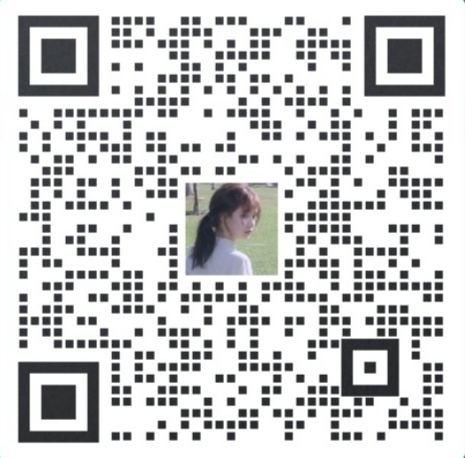2016年联考MBA英语语法辅导:定语从句
【摘要】环球网校提醒:2016年MBA考试已进入备考阶段。根据学员对复习资料问题的反馈,同时为进一步加深大家对复习资料相关信息的了解,环球网校老师为大家整理了“2016年联考MBA英语语法辅导:定语从句”,希望对大家有所帮助,环球网校将会及时为大家提供2016年MBA复习资料相关信息,敬请关注。
重点推荐:2016年研究生考试大纲汇总
限制性定语从句与非限制性定语从句的区分、用法
Which is which (or that)?
It's essential (and non-essential) to know
“That” restricts the reader's thought, directing attention to a specific bit of information to complete a message's meaning. “Which” is non-restrictive and introduces subsidiary rather than essential information to the meaning of the sentence.(环球网校MBA考试频道为大家整理2016年联考MBA英语语法辅导:定语从句)
Important note involving “which”: “Non-essential” does not mean that the information is not important or that it's not relevant. It just means that it's not essential, grammatically, to the meaning ― the central understanding ― of the sentence.
The lawnmower that is in the garage needs sharpening.
We have more than one lawnmower. Only the one in the garage needs sharpening.(环球网校MBA考试频道为大家整理2016年联考MBA英语语法辅导:定语从句)
The lawnmower, which is in the garage, needs sharpening.
We have only one lawnmower. It's in the garage and needs sharpening.
The statue that stands in the hall is on loan from the museum.
A number of statues are in the building. Only the one in the hall is on loan from the museum.
The statue, which stands in the hall, is on loan from the museum.
Only one statue is under discussion. It is on loan from the museum and happens to be in the hall.(环球网校MBA考试频道为大家整理2016年联考MBA英语语法辅导:定语从句)
Summary:
Restrictive clauses (“that”) modify, focus and limit. Because the information they supply is essential to the intended meaning of the sentence, they are not set off by commas.
Non-restrictive clauses (“which”) do not limit the words they modify. They simply add information that otherwise would not be provided. Non-restrictive clauses are set off by commas because the information they provide is supplementary, not essential to the meaning of the sentence.
But there's “who,” too
Restrictive and non-restrictive clauses need not begin with “that” and “which.” For example, if humans or animals with names are being discussed, “who” may become the appropriate choice for both kinds of clauses. In such cases, a comma all by itself can transform the meaning of the sentence.(环球网校MBA考试频道为大家整理2016年联考MBA英语语法辅导:定语从句)
He helped the native guides who were sick with malaria.
No comma appears before “who.” Therefore, what follows is a restrictive clause. Not all the guides had malaria.
He helped the native guides, who were sick with malaria.
Putting the comma before “who” makes what follows a non-restrictive clause. It also changes the sentence to mean that all the guides had malaria.
Got it? I hope so (the concept of restrictive/non-restrictive, that is ― not malaria.)(环球网校MBA考试频道为大家整理2016年联考MBA英语语法辅导:定语从句)
编辑推荐:
【摘要】环球网校提醒:2016年MBA考试已进入备考阶段。根据学员对复习资料问题的反馈,同时为进一步加深大家对复习资料相关信息的了解,环球网校老师为大家整理了“2016年联考MBA英语语法辅导:定语从句”,希望对大家有所帮助,环球网校将会及时为大家提供2016年MBA复习资料相关信息,敬请关注。
--------------------------------------------------------------------------------
No “who” or “which” or “that”?
Restrictive and non-restrictive elements are not always introduced by relative pronouns. Sometimes they simply are treated as essential (restrictive) or non-essential (non-restrictive) elements. In such cases, too, the comma is crucial to the meaning.(环球网校MBA考试频道为大家整理2016年联考MBA英语语法辅导:定语从句)
He went downtown to pick up his wife, Judy.
The addition of the non-restrictive element here merely provides us with the name of his wife ― his only wife. Because he has but one wife, her name is not essential to the reader in identifying her. Therefore, it makes it non-restrictive or non-essential to the meaning of the sentence and is set off by a comma.(环球网校MBA考试频道为大家整理2016年联考MBA英语语法辅导:定语从句)
He went downtown to pick up his wife Judy.
The omission of the comma creates a restrictive clause, of course. Now we are implying that he's a bigamist or lives in a culture that allows more than one wife.
My brother, Ken, worked for a TV ratings company.
This indicates that I have but one brother and his name is Ken. Because I have but one brother, his name is a non-restrictive element or non-essential to the meaning of the sentence. You don't need his name to know the exact person I'm talking about. Therefore, it is set off by commas.
My brother Ken worked for a TV ratings company.(环球网校MBA考试频道为大家整理2016年联考MBA英语语法辅导:定语从句)
Ahhh, this says I have more than one brother. And it's essential to know his name, otherwise you, the reader, wouldn't know which brother I'm talking about. So, no commas!
(Whereas, the commas around “the reader” in the above sentence are needed because “the reader” is non-restrictive -- not essential in identifying yourself to you! Got it?)(环球网校MBA考试频道为大家整理2016年联考MBA英语语法辅导:定语从句)
编辑推荐:
-
2025MBA/MPA/MEM-必备精华资料拼团已拼2794团
-
MBA《管理类综合能力》真题及答案解析(2023年-2025年)查看2.64MB 下载数 172
-
考研英语大纲-英语二(2026年)查看27.75MB 下载数 34
-
管理类综合能力考试大纲(2026年)查看77.86MB 下载数 33
最新资讯
- MBA《管理类综合能力》数学备考秘籍:核心公式+真题实战2025-05-16
- 2026年考研英语二——单词识记22025-01-07
- 2026年考研英语二——单词识记12025-01-02
- 考研英语二大作文万能句型——结尾2024-12-19
- 考研英语二大作文万能句型——开头2024-12-17
- 考研英语写作积累——教育主题短语52024-12-14
- 考研英语写作积累——教育主题短语42024-12-13
- 考研英语写作积累——教育主题短语32024-12-12
- 考研英语写作积累——教育主题短语22024-12-11
- 考研英语写作积累——教育主题短语12024-12-10
MBA历年真题下载 更多
-
MBA《管理类综合能力》真题及答案解析(2023年-2025年)2.64MB 下载数 172 查看
-
考研英语(二)真题及答案解析(2023年-2025年)1.27MB 下载数 65 查看
-
2025年管理类联考综合能力真题及解析(详解版)962.25KB 下载数 201 查看
2025MBA/MPA/MEM-必备精华资料已拼2794团 拼团
-
MBA《管理类综合能力》真题及答案解析(2023年-2025年) 2.64MB 下载数 172 查看
-
考研英语大纲-英语二(2026年) 27.75MB 下载数 34 查看
-
管理类综合能力考试大纲(2026年) 77.86MB 下载数 33 查看





 打卡人数
打卡人数





